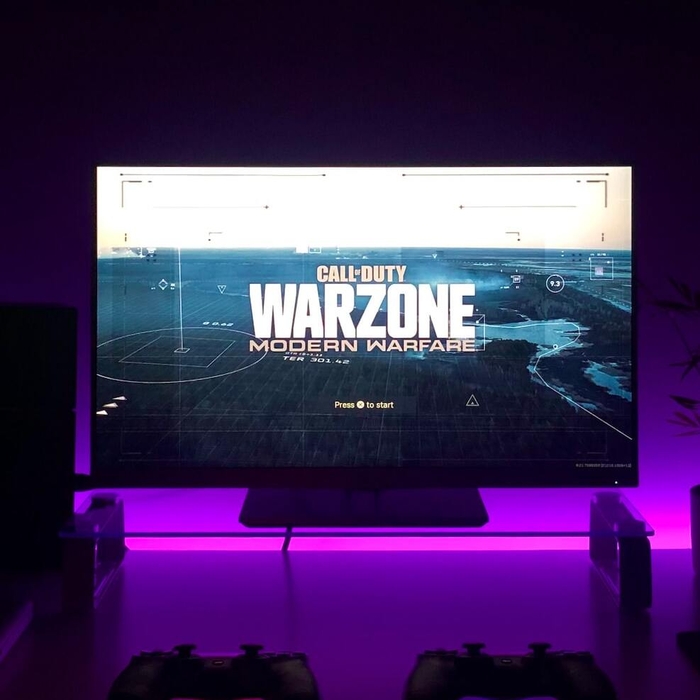We prisoners segregate ourselves according to race, religion, geography and other associations. The most common form of segregation is racial. Blacks group with Backs. Hispanics hang with Hispanics. Whites ally with Whites. And our communal televisions in the housing units are regulated according to these divisions.
This is how it works
Depending on the institution, there’s six to eight TVs in a housing unit. These few TVs must accommodate an average of 120 prisoners per unit (there are several housing units within one institution). Here at FCI Cumberland (a medium-security federal prison in Maryland), we have eight TVs in the unit. There are four in the common-area day room, and one each in four separate TV rooms.
Blacks make up the largest community, so they control five of the eight TVs. We Hispanics control two TVs (in most institutions, we only have one). The White community controls the other. This segregation is stark and pronounced. A White person cannot change the channel on a TV controlled by the Blacks. A Hispanic person cannot change the channel on the TV controlled by the Whites. And so forth. The crossing of lines is strictly prohibited; doing so comes with consequences.
This doesn’t mean attempted takeovers don’t occur, however. Sometimes a larger group makes a move against a smaller one, to take control of the latter’s TV. I was housed in a penitentiary in Pennsylvania when this happened. In that institution, there were seven TVs in the housing unit; Blacks controlled four, Hispanics two and Whites one.
The takeover happened before I arrived. The number of Hispanics was low in the unit and one of the larger Black groups took advantage of that fact, winning control of one of the Hispanic TVs. Because we were outnumbered, there was nothing we could do. But just under the surface, malcontent simmered.
Over time, the number of Hispanics grew, and so did the tension. Initially, members of the Hispanic community attempted to conduct “diplomacy.” When that failed, war seemed imminent — and everyone knew that if allowed to proceed, it would morph into more than a war over territory (the TV). It would also be a race war: Hispanics vs. Blacks.
Everybody strapped up with knives. The tension was so thick, you could cut it with one of those knives. I could feel my heart thudding in my chest and the adrenaline surging through my blood. Fear and excitement tightened my muscles; I was ready to pounce.
Somehow, cooler heads prevailed, and the tension let up. We still hadn’t re-acquired the TV, though. Although I was relieved that we narrowly sidestepped what could have been a horrific tragedy, I was also disappointed.
During the two years I was held in that institution, I couldn’t let go of the resentment I felt for being bullied by the larger group for control of the TV. Before I was transferred out of that place, I had convinced most of the other Hispanics to stake their claim over it. After I left, they won it back; thankfully, they were able to do it without bloodshed.
Internal divisions
That story aside, most conflicts are internal, within a race group. For example, most people don’t realize that all Hispanics are not the same, despite the fact that we all speak Spanish. We have distinctly different geographic origins and cultures. And they segregate us in a big way.
Gang associations segregate us even further. For example, we Puerto Ricans are separated by affiliations such as membership in the Latin Kings, NETAS, 27s and Neutrals (non-gang groups). The Dominicans have their own gangs, such as the Trinitarios. And the Mexicans are internally segregated as well. Individuals born in Mexico form a group known as the Paisas. Those of Mexican descent but born in California are known as the Sureños and have a very complicated hierarchy. El Salvadorians form the group known as MS13.
The Paisas don’t get along with the Sureños. The Sureños don’t harmonize with MS13. And neither of those groups mix well with Puerto Ricans.
With such diverse allegiances, conflicts over the TVs (and other “territories” within the institution) are inevitable. And with one or two TVs to share among us, arguments and fights happen regularly. For example, island-born Puerto Ricans, the Paisas and other predominantly Spanish-speaking brothers prefer to view Spanish-language shows. But those of us who grew up stateside want to watch mostly English shows. When we are forced to share one or two TVs, it’s a constant battle for dominance. This fosters resentment, which eventually spills over into physical conflicts.
A case in point: The Puerto Ricans recently had a conflict with the Sureños over the TVs. The Sureños wanted to control both of the two TVs, leaving us without one of our own. Although the type of shows we liked to watch mostly matched, egos kicked in. Fortunately, we begrudgingly worked it out. But shortly after, the Sureños got into another fight and ended up in the hole (solitary confinement). They were later transferred out of the prison — and we Puerto Ricans regained control of both TVs!
Blacks also have a diverse community, separated by geography and gangs. An example of a more serious incident happened in another prison. Malik (not his real name) was serving a life sentence and had a reputation of being easily angered and violent. He controlled one of the Black TVs and wouldn’t let anyone change the channel, Black or otherwise.
James (also not his real name) decided to defy Malik and one day, he changed the channel. Malik’s response was swift. He grabbed a knife and stabbed James several times. Fortunately, James survived. They were both sent to the hole, and James was later transferred to another prison. When Malik eventually returned from the hole, he again established his dominance over the TV.
What’s the solution?
This importance given to TVs may seem petty to outsiders. Stupid, even. But TVs are one of the few forms of entertainment available to us, and the days — years — are long.
There’s an easy answer: Give us access to basic cable channels in our cells, via the tablets now being sold, for a reasonable monthly fee. Let us find a little peace of mind by watching our favorite shows in the sanctity of our own cells, away from the chaos and stress of TV politics.
Unfortunately, however, it’s all about the money. The BOP and its commercial supplier have decided to charge us per download instead, at a fee we can’t afford. Until that changes, all I can say is, “Don’t touch my television!”




